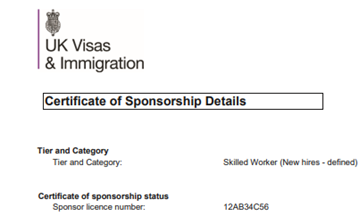Telecoms and Related Network Installers and Repairers, classified under SOC Code 5242, are essential professionals who ensure the effective installation and maintenance of telecommunications systems. Their role is critical in the smooth functioning of communication networks and infrastructure. Key responsibilities include:
- Installation of Wiring and Cabling:
- Installs internal cabling and wiring for telephone systems and networks.
- Fits and wires junction and distribution boxes.
- Connection of Lines:
- Fixes connecting wires from underground and aerial lines to premises.
- Connects cable terminals to inside wiring.
- Equipment Installation:
- Installs telephones, switchboards, and coin-operated phone boxes.
- Testing and Maintenance:
- Uses testing equipment to locate defective components of circuitry.
- Makes necessary repairs and tests installations for functionality.
- Assists with the erection of wooden poles or steel towers to carry overhead lines.
- Fault Detection and Repair:
- Locates and repairs faults to lines and ancillary equipment.
- Erects and maintains mobile telecoms infrastructure.
As the demand for reliable communication networks continues to rise, the need for skilled telecoms installers and repairers becomes increasingly vital. This guide is designed to assist HR professionals in understanding the process of hiring and sponsoring these technical specialists within the UK’s immigration framework.
What is SOC Code 3411 for Telecoms and related network installers and repairers?
SOC Code 5242 refers to telecoms and related network installers and repairers who are essential in ensuring the functionality and reliability of communication systems. Their responsibilities can include:
- Installing internal cabling: Setting up wiring for telephone systems and network infrastructures.
- Fitting and wiring junction and distribution boxes: Connecting various components to facilitate communication.
- Connecting aerial and underground lines: Fixing connecting wires to premises and linking to internal wiring.
- Installing telephonic equipment: Ensuring the installation of telephones, switchboards, and coin-operated phone boxes.
- Using testing equipment: Locating defective components within circuitry and performing necessary repairs.
- Testing installations: Conducting assessments to ensure proper functionality and making further adjustments as needed.
- Assisting with infrastructure erection: Helping to erect wooden poles or steel towers for overhead lines.
- Connecting and testing cables: Ensuring that all connections are secure and checking for any defects in cabling.
- Locating and repairing faults: Troubleshooting and fixing issues in lines and ancillary equipment.
- Erecting and maintaining mobile telecoms infrastructure: Ensuring the operability of mobile networks across various locations.
Telecoms and related network installers and repairers play a crucial role in maintaining communication networks, supporting business operations, and connecting communities.
Eligibility to Hire Telecoms and related network installers and repairers (SOC Code 3411)
1. Job Requirements
Telecoms and related network installers and repairers must exhibit a strong technical aptitude and meet specific qualifications or experience criteria. These may include:
- Technical Skills: Proficiency in installing and repairing telephone systems, networks, and related equipment, including experience with internal cabling and wiring.
- Field Experience: Prior work experience in telecommunications installation and repair, showcasing the ability to handle both underground and aerial lines.
- Equipment Familiarity: Ability to use testing equipment to identify and troubleshoot defective components in circuitry, as well as make necessary adjustments post-installation.
- Hands-On Capability: Experience in erecting and maintaining wooden poles or steel towers for overhead lines, including the installation of telephones, switchboards, and coin-operated phone boxes.
- Problem-Solving Skills: Expertise in locating and repairing faults in lines and ancillary equipment, ensuring reliable service and infrastructure.
- Safety Compliance: Knowledge of safety regulations and procedures relevant to working with telecommunications infrastructure.
Ensure the job description aligns with SOC Code 5242 and that the candidates’ experience and work meet the expectations for the role.
- Salary Thresholds
- Use the Minimum Salary Calculator to ensure your salary offer meets immigration requirements.
Sponsoring Telecoms and related network installers and repairers: A Step-by-Step Guide for HR Professionals
Once you’ve confirmed that the role and candidate meet the eligibility requirements, follow this step-by-step guide to sponsoring Telecoms and related network installers and repairers under SOC Code 5242.
Step 1: Obtain a Sponsor Licence
Before hiring non-UK Telecoms and related network installers and repairers, your company or institution must obtain a sponsor licence. This licence enables you to legally sponsor overseas Telecoms and related network installers and repairers under the Skilled Worker Visa program.
- Sponsor Licence Application: Submit documentation proving that your business is legitimate and has a genuine vacancy. Visit the sponsor licence application guide for more information.
- Sponsor Licence Fees: Small businesses typically pay £574, while larger institutions pay £1,579. For more information, visit the sponsor licence fees guide.
- Processing Time: Applications typically take up to 8 weeks, but using the Sponsor Licence Priority Service can reduce the processing time to 10 working days.
Once your sponsor licence is approved, you will receive a sponsor licence number, which allows you to assign Certificates of Sponsorship (CoS).
Step 2: Assign a Certificate of Sponsorship (CoS)
Once you have your sponsor licence, the next step is to assign a CoS to the Telecoms and related network installers and repairers. This document provides key details about the job and the individual being sponsored.
- Defined vs Undefined CoS: Use a Defined CoS for Telecoms and related network installers and repairers applying from outside the UK, and an Undefined CoS for those already in the UK. Learn more in the Defined & Undefined Certificates of Sponsorship guide.
- Required Documents: Provide details such as the Telecoms and related network installers and repairers’s portfolio, passport and job offer. Refer to Documents Required for Certificate of Sponsorship for a full list of necessary documents.
Step 3: Apply for the Skilled Worker Visa
Once the CoS is issued, the Telecoms and related network installers and repairers can apply for the Skilled Worker Visa.
- Visa Fees: Fees vary depending on the role and visa length—use the visa fees calculator to estimate the costs.
- Immigration Skills Charge: Employers are required to pay this charge as part of sponsoring non-UK workers. This is separate from visa fees.
Conducting a Right to Work Check for Telecoms and related network installers and repairers
Before the Telecoms and related network installers and repairers begins working, you must conduct a right to work check to ensure they are legally allowed to work in the UK.
- Manual Right to Work Check: Verify original documents such as the Telecoms and related network installers and repairers’s passport and visa.
- Online Right to Work Check: If the Telecoms and related network installers and repairers holds an eVisa, you can use the UK government’s online system to verify their right-to-work status.
For more details on how to perform these checks, see the right to work check guide.
Post-Hiring Responsibilities and Compliance
- Record-Keeping and Reporting
- Record-Keeping: Maintain accurate and up-to-date records of the Telecoms and related network installers and repairers’s employment details, salary and contact information.
- Reporting Changes: Report any significant changes to the Telecoms and related network installers and repairers’s role—such as promotions or salary increases—via the Sponsor Management System (SMS).
- Sponsor Licence Duties and Compliance
- Failure to comply with your sponsor licence duties can result in penalties or sponsor licence revocation, impacting your ability to sponsor future Telecoms and related network installers and repairerss.
How Borderless Can Help with Sponsoring Telecoms and related network installers and repairers
Sponsoring Telecoms and related network installers and repairers under SOC Code 5242 can be a complex process, but Borderless can simplify it for you. We offer comprehensive support to help you manage the entire sponsorship process.
End-to-End Sponsorship Support
At Borderless, we assist with:
- Sponsor Licence Application: Guiding you through the application process and ensuring all required documents are submitted correctly.
- Certificate of Sponsorship Assignment: Streamlining the CoS process to make hiring easier.
- Compliance Management: Helping you stay compliant with immigration laws to avoid penalties.
If you need assistance with hiring or sponsoring Telecoms and related network installers and repairers, get in touch for personalised support.
Conclusion
Hiring and sponsoring Telecoms and related network installers and repairers under SOC Code 5242 can be a rewarding way to enrich the cultural landscape of your organisation. By following the steps outlined in this guide, you can successfully navigate the sponsorship process while ensuring compliance with UK immigration laws.
For further guidance, Borderless is ready to assist you with all your sponsorship needs. Contact us for expert advice.
Automate Home Office Audits with Borderless
The Borderless platform provides a centralized system for all sponsorships, automating reminders for key tasks and ensuring best practices across your organization, simplifying audit preparation and ongoing compliance.






